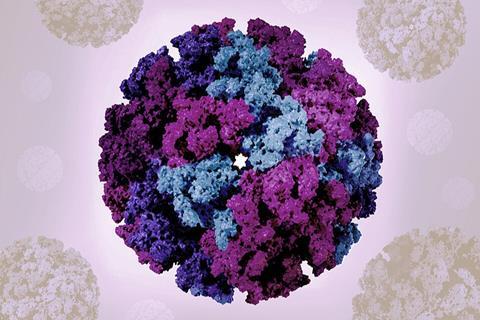Chikungunya virus (CHIKV) is a medically significant arbovirus transmitted by Aedes mosquitoes, responsible for chikungunya fever, which is characterized by severe and often chronic arthralgia.

With increasing frequency and geographic expansion of CHIKV outbreaks in recent years, there is a pressing need for robust genomic surveillance and efficient outbreak response tools. However, existing public repositories of CHIKV genomic data are often fragmented, poorly annotated, and lack integrated analytical capabilities, limiting their utility during emergencies.
To address these limitations, the authors developed the Chikungunya Virus Database (CHIKVdb), a comprehensive genomic resource accessible at https://nmdc.cn/gcpathogen/chikv. CHIKVdb integrates 8,193 nucleotide sequences and 10,637 protein sequences from five major host categories across 99 countries, spanning 40 years. The database combines curated, high-quality genomic data with an online phylogenetic analysis platform, providing one-stop tools for source tracing, significantly streamlining traditionally complex bioinformatic workflows.
Intuitive overview
The web interface of CHIKVdb offers an intuitive overview of sequence data, with clickable metrics leading to detailed metadata tables that include isolate name, geographic origin, sampling time, and host etc. Additional subpages provide biological summaries, spatiotemporal visualizations, and a knowledge graph displaying research collaborations and curated literature.
An interactive molecular surveillance module enables dynamic mapping of CHIKV spread from 2000 to 2024 at global and regional levels. A dedicated data submission portal also allows registered users to contribute new sequences.
Key analytical tools embedded within CHIKVdb include a source tracing system that reconstructs transmission chains via sequence alignment and phylogenetic inference, a Single Nucleotide Polymorphism (SNP) analysis tool for variation identification, and a genotype identification tool that matches queries against 327 experimentally validated reference sequences.
Global data
Analysis of global data reveals that India, Brazil, and Thailand contributed the most sequences. Humans and mosquitoes are the dominant hosts globally, though significant regional variations exist, for instance, China reported a high proportion (20%) of mosquito-derived sequences.
Genotype distribution analysis shows that ECSA (East, Central and South Africa-Indian ocean linage) and ECSA-IOL (East, Central and South Africa-Indian ocean linage) are the most widespread lineages, with high prevalence in countries such as Singapore, Sudan, and Paraguay etc. Temporal analysis indicates consistent detection of human and mosquito-derived sequences, whereas wildlife hosts (e.g., bats, monkeys) appear only sporadically. The ECSA genotype has shown a marked increase in frequency since 2020, exceeding 93% after 2023.
Potential transmission links
Phylogenetic reconstruction of 76 high-quality genomes using CHIKVdb’s tools revealed potential transmission links between Bangladesh and Thailand, and distinct clustering of pre-2016 Asian-Pacific strains, highlighting spatiotemporal heterogeneity in CHIKV spread.
CHIKVdb addresses critical gaps in CHIKV genomic surveillance by integrating globally sourced sequences with standardized metadata and user-friendly analytical tools. It supports rapid response during outbreaks and facilitates research into transmission dynamics and viral evolution.
Future efforts will focus on expanding wildlife host sequencing and enhancing regional genomic surveillance to further elucidate CHIKV ecology and inform public health strategies. The database will be regularly updated to ensure data currency and accuracy.







No comments yet